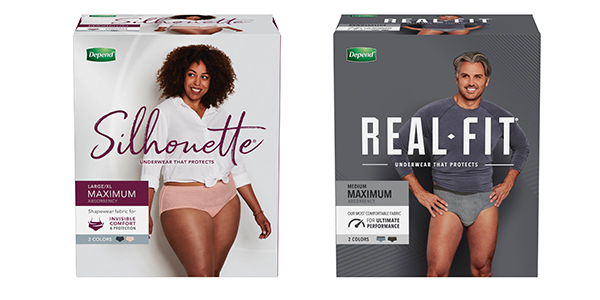How to Talk About Bladder Leaks With Your Doctor

SPONSORED CONTENT
Don’t suffer in silence with bladder leaks. You should let your doctor know because there’s a good chance they have some tips and tricks up their sleeves! Here’s everything you need for your visit — a checklist, questions to ask, how to broach the subject and what to expect.
According to the Canadian Urinary Bladder Survey, 16% of men and 33% of women aged 40+ have symptoms of bladder leakage — but only 26% have discussed it with their doctor.1 Maybe you’re embarrassed to bring it up or using the pandemic as an excuse to put it off.
Bladder leakage is common and nothing to be ashamed of. It’s a symptom of another problem in your body, which could be as simple as a urinary tract infection, constipation or weak pelvic floor muscles. Most cases can be treated, or managed, so let’s get on with it.
Be prepared
Keep a bladder diary for two days before your appointment to help your doctor understand your symptoms and what could be causing them. Track the times that you drink (what and how much), when you urinate and how much, and when you leak and the amount. Print this article, fill in the information below and check the boxes that apply to you. Bring it and the diary to your appointment.
Bladder Leakage Checklist
I’ve had leaks for _________ ▢ weeks ▢ months ▢ years.
I urinate _________ times a day.
▢ When I need to urinate, there’s urgency to do it immediately.
▢ I wake up and go to the toilet more than twice a night.
▢ I leak in my bed at night.
▢ I leak when I laugh, cough, sneeze, exercise or lift something heavy.
▢ I leak on the way to the toilet.
▢ I dribble after urinating.
▢ I have difficulty starting to urinate or have a weak stream.
▢ It feels like I haven’t completely emptied my bladder.
▢ My urine is cloudy or bloody.
▢ I have pain or burning before, during or after urinating.
▢ I pass little urine after strong urges to urinate.
▢ I’ve been diagnosed with a urinary tract infection before.
▢ I’ve been diagnosed with an enlarged prostate before.
Medical conditions _______________________________________________________
Recent illnesses _______________________________________________________
Surgeries _______________________________________________________
Medications _______________________________________________________
Start the conversation
Initiate the conversation! Begin with “I’d like to talk about my bladder leaks” or “I’m having trouble controlling my bladder.” Your doctor will ask about your symptoms and overall health and examine your abdomen and genitals. You may have a urine or blood test or additional tests. Your doctor may suggest treatments or refer you to a specialist.
Ask the right questions
- What could be causing my leaks?
- Are there lifestyle changes (e.g. diet, exercise) I can make?
- Are there triggers (e.g. medications, foods, drinks) that can worsen my symptoms?
- What are my treatment options and their benefits and risks? For example:
- Kegel exercises
- Bladder training
- Vaginal cones or pessaries
- Medications
- Surgery
- Do I need to see a specialist (e.g. urologist, pelvic floor physiotherapist)?
Stay dry, protected and comfortable
While you’re getting to the bottom of your leaks, use absorbent products to protect your skin and keep you fresh and odour-free. Plus, you’ll be ready for any leaks that happen!
Depend® products are specifically designed for bladder leaks and come in a variety of styles, absorbencies and colours for your best protection. Check out their best comfort and protection guaranteed* products for women and products for men.

Learn more about Depend® products and order free samples at Depend.com. Subscribe and save on your favourite Depend® products on Amazon.
*If you’re not completely satisfied with your Depend® Underwear, we can help. Original receipt/UPC required. Restrictions apply. See Depend website for details. Purchase by 12/31/24. Mail in by 1/31/25.
1 The Canadian Continence Foundation. (2018). The source: Your guide to better bladder control. Retrieved December 4, 2020, from https://www.canadiancontinence.ca/EN/the-source-guide.php
